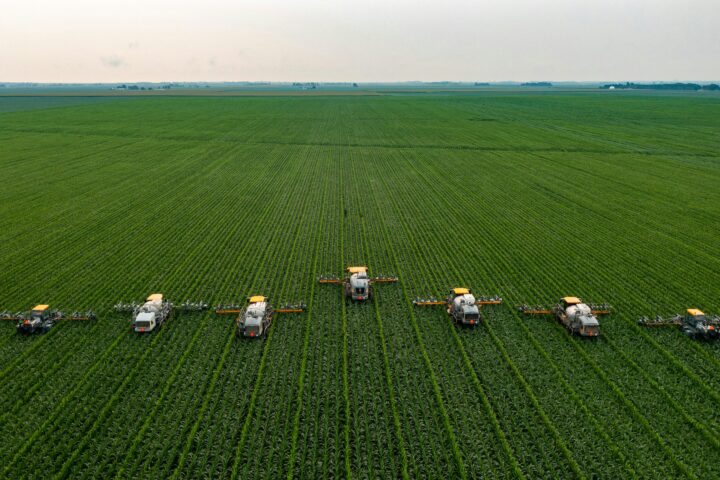«Modern pesticides can help fight climate change»
Jon Parr is president of Syngenta Crop Protection. He writes that agriculture is a major contributor to climate change. It is also an industry directly and negatively affected by the weather extremes of climate change. That fact poses an existential challenge to the world, as the global population continues to expand.
Wednesday, November 10, 2021
In a recent opinion essay published by Dow Jones MarketWatch, Jon Parr, the president of Syngenta Crop Protection, addressed those challenges. He also pointed out what he sees as counterproductive efforts by public policymakers who, in the name of protecting the environment, are making it even harder for the globe’s farmers to feed the world. Here is a shortened version of Parr’s essay:
It’s estimated that we will need to grow 70% more food by 2050 to feed the 10 billion people who will be inhabiting our planet. But many public policy makers seem to assume that the agriculture industry has largely solved the extraordinarily complex problem of producing a healthy, abundant and secure food supply.
That assumption leads to demands on environmental grounds that we reject the technologies that have made modern agriculture so productive. These generally include efforts to ban genetic modification, synthetic fertilizers and pesticides, and sometimes even mechanization. But pesticides are usually the top candidate for elimination.
In light of the U.N. Climate Change Conference that began on Oct. 31 in Glasgow, these demands are certain to become more strident in the name of combating climate change. Agriculture accounts forabout 10% of all greenhouse gas emissions. That’s a number the world farming community must continue reducing by making agriculture more efficient and less energy intensive.
And yet, unless we can also continue making agriculture more productive on the land already under cultivation, farmers around the globe will have little choice but to clear more forests and natural vegetation to produce the additional food the world will require in coming years. Clearing that land would only make the climate problem worse, because forests and other natural plants are nature’s chief way of removing carbon dioxide from the atmosphere.
From an environmental perspective, the hostility to modern pesticide technology makes little sense. Since the 1960s, in response to consumer concerns, the chemical industry has worked hard with farmers to reduce unnecessary use of pesticides. Chemical innovation has slashed pesticide toxicity by 98%, reduced the amount applied per acre by 60% and curtailed pesticide persistence in the environment by more than half.
Only through continued innovation in agriculture can we meet the extraordinary environmental and food-security challenges ahead. Those innovations include biologicals and other forms of crop protection, digitally precise farming, genetic improvements in plants, new and improved kinds of fertilizer and — yes, when and where necessary — environmentally responsible use of chemical pesticides.
Jon Parr ist President of Syngenta Crop Protection. This article first appeared in Market Watch on 1 November 2021.
Related articles

ARTE documentary: Genetic engineering in organic farming?
The ARTE documentary “Genetic engineering in organic farming?” examines key controversial questions of modern agriculture: Is the general exclusion of new breeding technologies still up to date? Can the resistance of organic farming be justified scientifically?

Why consumers accept gene-edited foods on their plates
Acceptance of gene-edited foods increases when their tangible benefits are clear to consumers. Studies show that visible advantages for health, the environment or food security are key to public support.

Genetic Engineering in Everyday Swiss Life – “There’s a Gene in Everything!”
The genetic engineering moratorium in place since 2005 gives the impression that Switzerland is largely free of genetic engineering. However, a closer look shows that genetic engineering has long since become part of our everyday lives – we just usually don’t notice it.

The Great Suffering of Farmers
Fire blight, Japanese beetles, or grapevine yellows – farmers in Valais, too, are increasingly feeling helpless in the face of the threats posed by nature. More and more often, they lack the means to effectively protect their crops. This makes it all the more important for the Federal Council to place a pragmatic balancing of interests at the forefront when setting threshold values.

